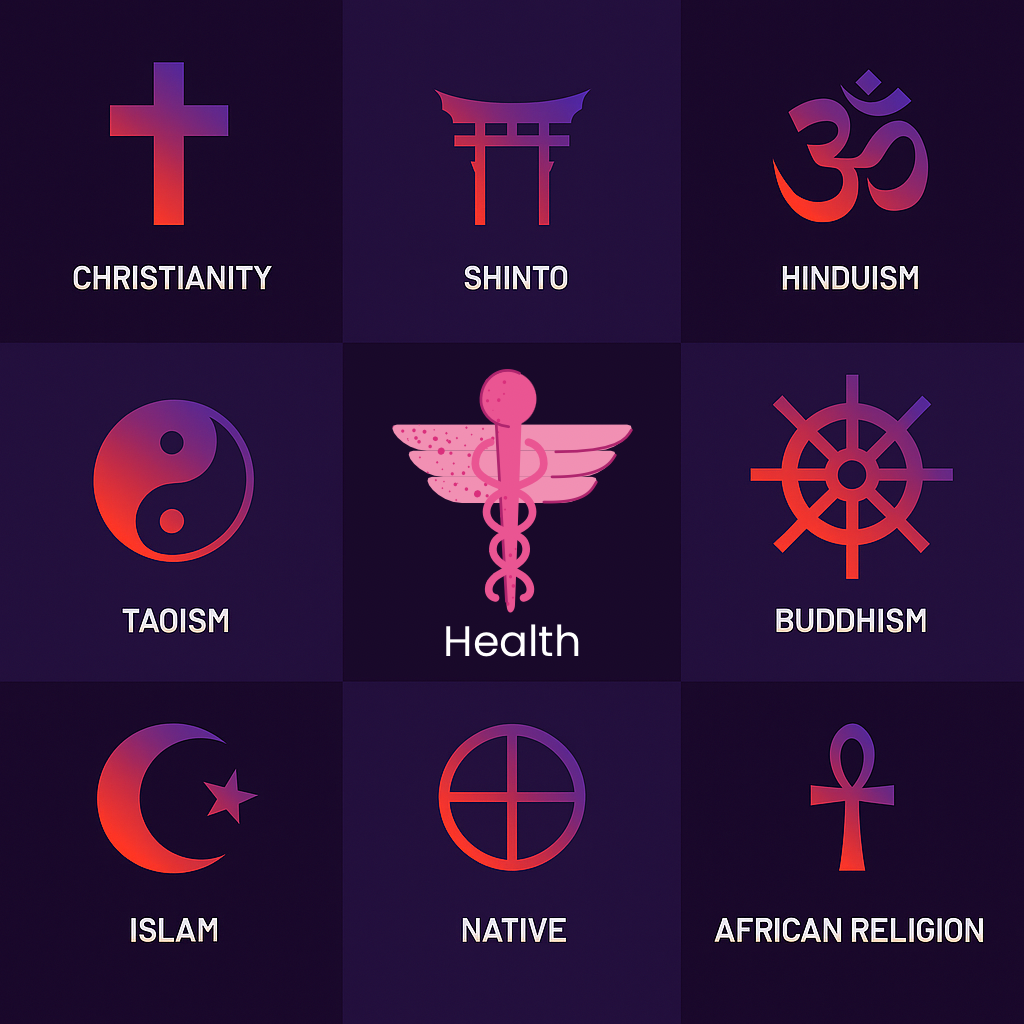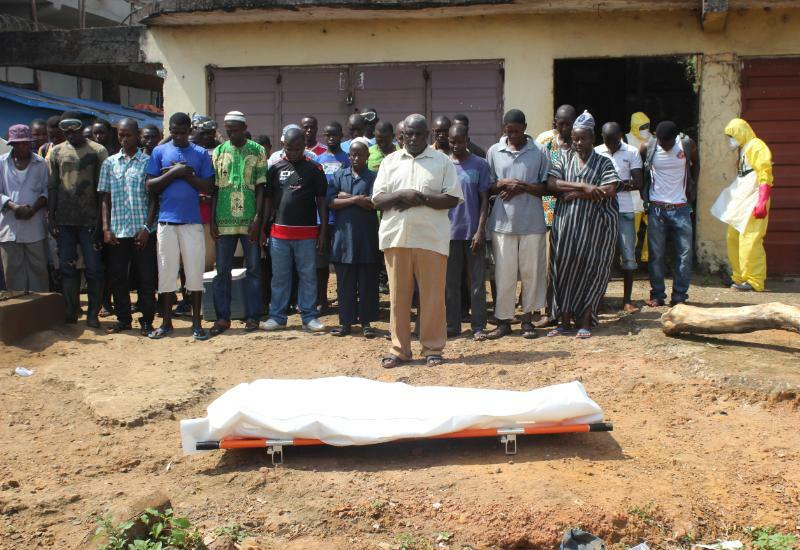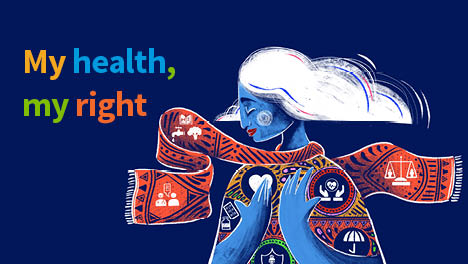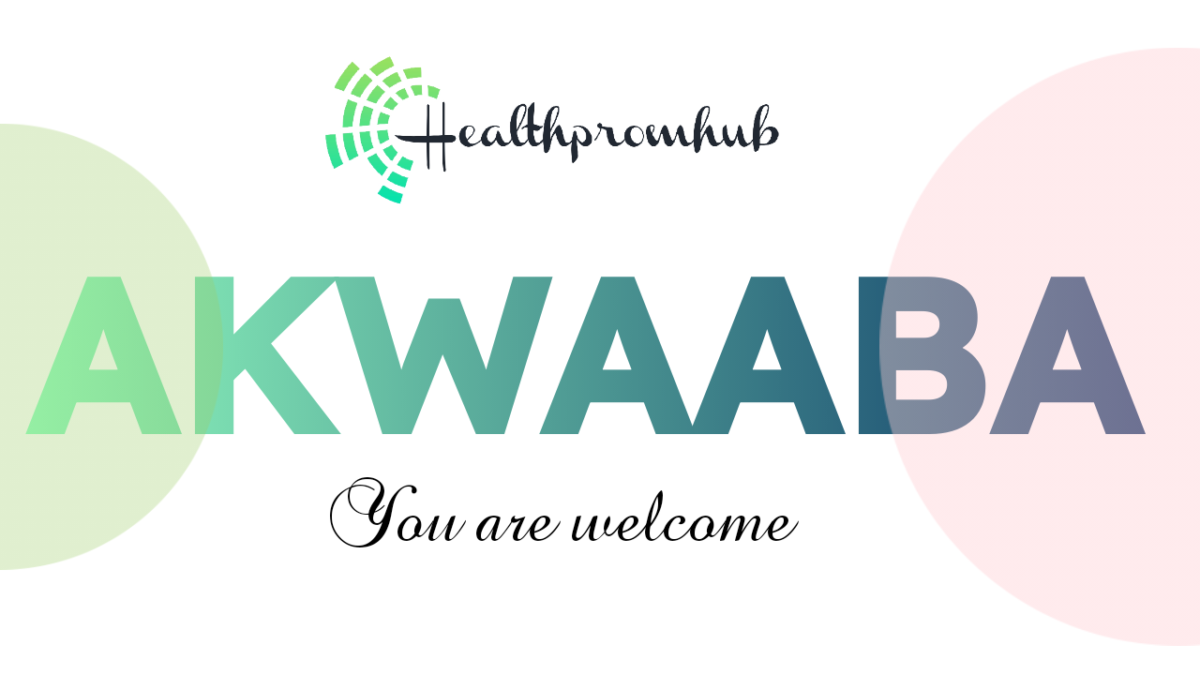
Introduction
My last article focused on culture as a social determinant of health. Today, I want to look at yet another important but often underestimated determinant—religion. As usual, I will ‘drum my point home’ with stories.
About Religion and its positive influence on health
Religion shapes the beliefs, practices, and way of life of its followers. Many people avoid alcoholism, harmful drugs, or illicit sexual behavior, not necessarily because of health education, but because their religion frowns on such habits and warns of spiritual consequences. Yet, even if their motivation is spiritual, the outcome is health-promoting—they are less exposed to risks such as respiratory tract diseases or sexually transmitted infections.
In Ghana, Christianity and Islam have made immense contributions to healthcare. Many leading hospitals and clinics were established by religious bodies. These institutions also provide social support for members during sickness—whether through visits, prayers, or even financial assistance for medical bills. Religion, therefore, has a very visible footprint in healthcare. Churches and mosques serve as centers for community public health programs such as vaccination, nutritional growth monitoring for babies, health education etc.
When Faith Conflicts with Medical Care
At the core of religion is faith—the belief that a supreme being can intervene in even the most difficult situations, including sickness. This faith shapes doctrines on illness and healing, which vary widely across religions and even across denominations of the same faith. For example, some religious sects prohibit their members from seeking medical treatment. The belief is simple: their God alone has the power to heal. I remember an acquaintance who had to sneak to the hospital because his religion frowned on seeking medical advice. His biggest fear was not the sickness itself but his family’s reaction if they discovered he had gone against their doctrine.
Some religious groups also prohibit blood transfusion—even if it means losing one’s life. Many have died as a result. During the COVID-19 pandemic, some religious leaders fueled conspiracy theories, and many followers rejected the vaccine purely on religious grounds. That experience showed, once again, just how powerful religion is when it comes to health decisions.
Years ago, Ghana rolled out a national vaccination campaign against polio. A certain religious group strongly opposed the exercise and warned members not to vaccinate their babies. The government, realizing the threat to public health, took a radical step: medics, escorted by the military, interrupted their worship service and vaccinated all eligible children by force.
More recently, I had a conversation with a father whose story was heartbreaking. His baby girl had a serious health condition that lingered for months. At first, he sought medical care. But when the problem persisted, his family insisted that the cause was spiritual—that the child was battling an evil spirit. Sadly, they abandoned the hospital route and pursued religious rituals instead. The little girl died a few months later.
As fate would have it, years later, this same man fell gravely ill. His family again refused to take him to the hospital, convinced the cause was spiritual. Thankfully, his friends intervened, took him to the hospital, and doctors diagnosed and treated him. He recovered fully. That experience shook him so much that he changed his religion and joined the faith of the friends who had saved his life.
Cases and Lessons for Public Health
A public health worker should understand the religion of the people he/she is serving, because these beliefs often shape health beliefs, practices and attitude towards health messages, illness, treatment. Awareness of these beliefs helps avoid conflicts with the cultural values of the people and increases community acceptance of the interventions. It also makes it possible for health messages and projects to be tailored to resonate with the communities’ spiritual values. Ultimately, this builds trust and improves the effectiveness and sustainability of health programs.
An example of this is seen during the Ebola Outbreak in West Africa. Some communities resisted safe burial practices because they conflicted with religious and cultural rituals of washing and touching the dead. Public health workers who engaged religious leaders to adapt the rituals, keeping the spiritual significance while ensuring safety saw much higher community acceptance and cooperation. Again, the World Health Organization (WHO) updated burial protocols: family and clergy were allowed at burial sites to observe rituals like dry ablution, shrouding, prayers and family participation, all while ensuring safety. A decision which carried the people along to embrace and cooperate.
This approach built trust and helped to curb transmission of the disease. This was achieved after religious leaders were engaged and included in the decision-making process. Imams and Pastors engaged their congregations, helping them understand that the ‘rules are not absolute’. They made necessary adjustments and worked hand-in-hand with public health workers, contributing to success.
Before this intervention, about 5,000 deaths had been recorded across the 3 hardest hit nations (Seirra Leone, Guinea and Liberia). Probably, the death toll could have been much lower if the engagement of religious and community leaders had started earlier, as funeral rituals (without observance of safety protocols) were suspected to be a major contributor to the rapid spread of the disease. This is captured in more detail in “how the fight against Ebola tested a culture’s traditions”.

Conclusion
Religion remains a powerful determinant of health. It can protect, it can promote, and at times, it can endanger. Its influence on health decisions—whether through doctrine, faith practices, or institutional support—is undeniable. If public health interventions are to succeed, they must engage religious institutions, respecting faith while ensuring health is not compromised. Faith heals, but when faith blinds us to reason, it can also harm. The healthiest path is where belief and science walk hand in hand.”




